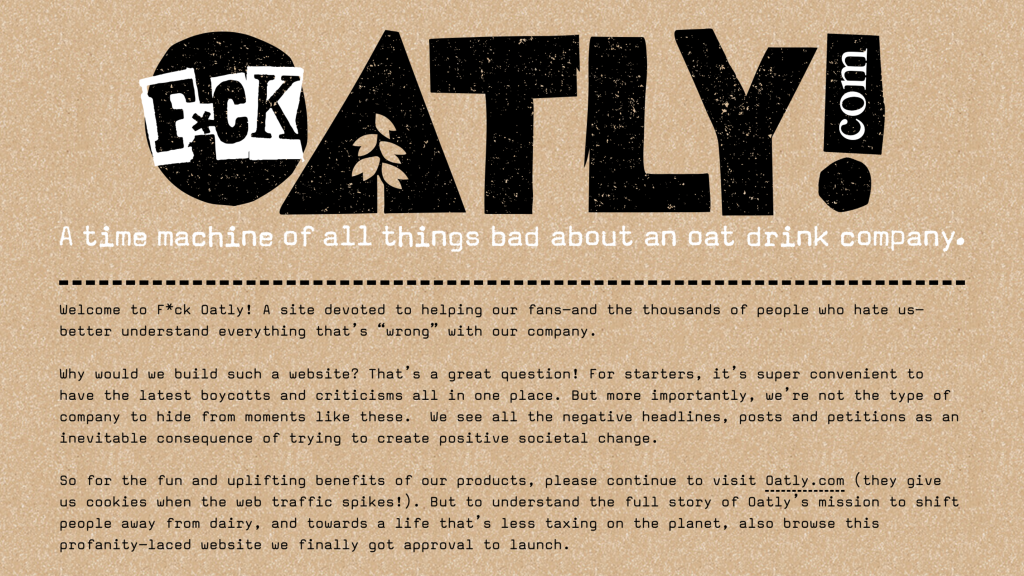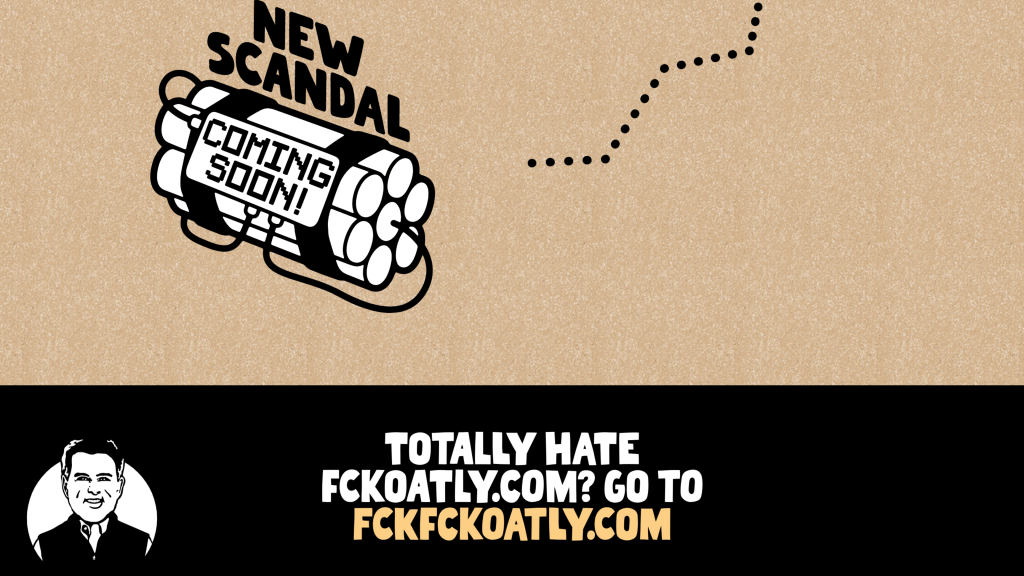In an era where transparency and accountability have become paramount for businesses, the unconventional approach taken by Oatly, a leading plant-based milk brand, stands out as a bold, innovative, and somewhat paradoxical strategy. In October 2023, the company launched a website named “F*ck Oatly,” a self-critical platform that openly addresses and outlines the company’s past missteps and controversies. This move, seemingly counterintuitive, offers a rich tapestry of lessons on how businesses can navigate the treacherous waters of public relations, consumer trust, and brand authenticity in the digital age.
The genesis of “F*ck Oatly”

“F*ck Oatly” emerged amidst a flurry of public scrutiny and backlash against the company. From legal battles with smaller plant-based brands to the ethical debate over selling oat residue to pig farms, Oatly found itself at the center of several controversies. Instead of shying away or deploying traditional PR tactics to mitigate these issues, Oatly took an audacious step by creating a platform that not only acknowledged these issues but did so with a tone of self-deprecation and transparency.
The strategy behind transparency
The website’s opening paragraphs offer a glimpse into Oatly’s rationale: “Why would we build such a website? That’s a great question!” It acknowledges the convenience of having all criticisms in one place but underscores a deeper philosophy of facing negative feedback head-on. Oatly posits that the negative headlines and criticisms are “an inevitable consequence of trying to create positive societal change.”
This approach is emblematic of a broader trend where consumers demand greater transparency and accountability from brands. By owning up to its mistakes publicly, Oatly aims to foster trust and dialogue with its consumers, demonstrating that it is a brand willing to listen, learn, and improve.
Learning from missteps
The website details several of Oatly’s controversies, such as “Glebe Gate” and “The Residue Ruckus,” with an irreverent tone that is both refreshing and engaging. This tone, while risky, humanises the brand, making it more relatable to consumers who are tired of corporate doublespeak. It’s a delicate balance to strike, but Oatly’s approach suggests that consumers are more forgiving of brands that admit their faults honestly rather than those that deny.
The power of self-deprecating marketing
Oatly’s self-deprecating marketing is not new. The brand has consistently employed this strategy, most notably in its Super Bowl LV ad, which featured CEO Toni Petersson in a quirky jingle that received mixed reactions. The subsequent sale of t-shirts mocking the ad’s reception is a testament to Oatly’s embrace of its unique brand voice, one that is unafraid to poke fun at itself.
This strategy taps into a deeper cultural vein where authenticity and humour resonate more with audiences, particularly younger consumers who value genuineness over polished marketing messages. It’s a nuanced form of engagement that acknowledges the imperfections of the brand while inviting consumers to be part of its journey of improvement.
The risks and rewards

The “F*ck Oatly” campaign is not without its risks. There’s a fine line between self-criticism and self-sabotage, and not all consumers may appreciate or understand the brand’s intent. However, the rewards, in terms of building a loyal, engaged community that values transparency and authenticity, can be significant.
For businesses looking to learn from Oatly’s example, the key takeaway is the importance of genuine engagement with consumers. In an age where trust is hard-earned and easily lost, admitting to and learning from mistakes can be a powerful way to build and maintain consumer relationships.
Conclusion
As brands continue to seek ways to connect with consumers on a deeper level, Oatly’s bold strategy underscores the evolving dynamics of brand-consumer relationships, where honesty, accountability, and a willingness to engage in two-way dialogue are increasingly becoming the hallmarks of successful brands.
In a world where consumers are bombarded with polished messages and curated images, Oatly’s “F*ck Oatly” campaign is a refreshing reminder that, sometimes, admitting you’re in the wrong can be the right move.



